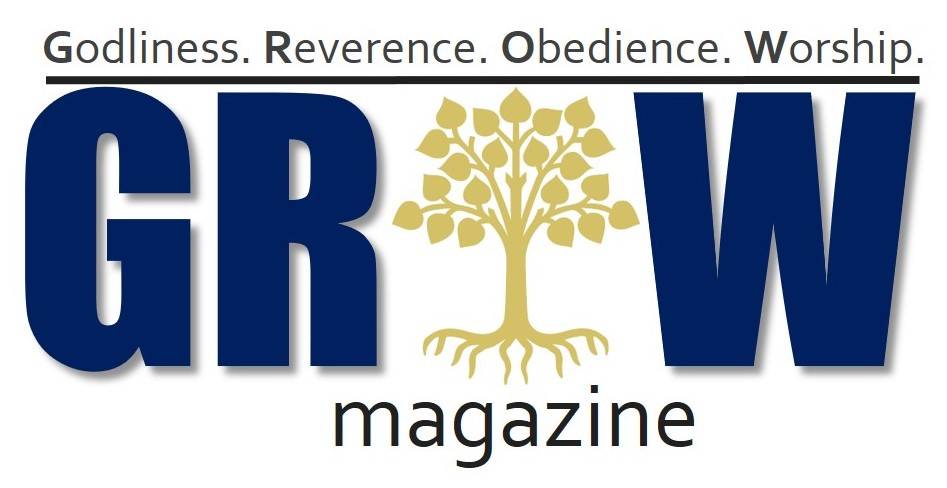Instrumental Music in the New Testament
WORSHIP ARTICLE | William Stewart | Kingston, Ontario

In a previous article, we looked at Instrumental Music in the Old Testament (click here). We noted several instances of instrumental music used in worship as well as direct commands for such. Now, we want to focus on the New Testament. Do we see examples of worship with instruments? Are there any commands to play instruments in worship? What was the manner of music used by the early church as directed by the Spirit-inspired apostles?
References to Musical Instruments in the New Testament
In our study here, we will focus on Matthew through Jude. We will look at the book of Revelation in a subsequent article. In the 26 New Testament books apart from the Apocalypse, there are just a handful of references to musical instruments.
- Matthew 6:2 uses the phrase “sound the trumpet” figuratively of those who seek attention.
- Matthew 11:17 speaks of children playing a flute in a game (cf. Luke 7:32).
- Matthew 24:31 speaks of the trumpet of the Lord at judgment (cf. 1 Corinthians 15:52; 1 Thessalonians 4:16).
- 1 Corinthians 13:1 uses the sound of an instrument to illustrate a point about love.
- 1 Corinthians 14:6-7 use the flute, harp, and trumpet to show the need for clarity and understanding in what is said.
- Hebrews 12:19 uses the sound of a trumpet to speak of God’s greatness.
Those are all the verses in the New Testament which mention musical instruments. None of them are in the context of worship. In fact, there is not one text in the New Testament which associates instrumental music with worship.
It is a Question of Authority
The New Testament says nothing about instrumental music in worship. So what? Why should that matter? On more than one occasion I’ve heard people say, “It doesn’t say we can’t” regarding various church practices and activities, including the use of instrumental music. Does the absence of a negative command (“thou shalt not”) justify us doing whatever we want to do?
Is God’s silence licence to act or limitation from action? This is not a new question. Some in the early post-apostolic church posited that if something is not forbidden then it is allowed. Tertullian (150-222 AD) responded by saying, “There are some things which are not to be desired merely because they are not forbidden, albeit they are in a certain sense forbidden when other things are preferred to them…” (Tertullian). The same dispute existed many centuries later among the reformers. Ulrich Zwingli affirmed that any practice “not enjoined or taught in the New Testament should be unconditionally rejected” (Newman, 308). His widely known contemporary, Martin Luther, took an opposing view, claiming, “What is not against Scripture is for Scripture, and Scripture for it” (Newman, 308). Which position is right?
The answer is in Scripture itself. Repeatedly we are told to do according to God’s word, to not add to it, to not go beyond it. Here is a selection of texts:
- “Therefore, you shall be careful to do as the LORD your God has commanded you; you shall not turn aside to the right hand or to the left.” (Deuteronomy 5:32)
- “Whatever I command you, be careful to observe it; you shall not add to it nor take away from it.” (Deuteronomy 12:32)
- “Every word of God is pure; He is a shield to those who put their trust in Him. Do not add to His words, lest He rebuke you, and you be found a liar.” (Proverbs 30:5-6)
- “…that you may learn in us not to think beyond what is written, that none of you may be puffed up on behalf of one against the other.” (1 Corinthians 4:6)
- “…whatever you do in word or deed, do all in the name of the Lord Jesus, giving thanks to God the Father through Him.” (Colossians 3:17)
- “If anyone speaks, let him speak as the oracles of God…” (1 Peter 4:11)
We can learn whether God’s silence is licence or limiting by considering examples in Scripture.
- The Law speaks of the priesthood in Israel coming from the sons of Aaron or the tribe of Levi (Numbers 1:50-53; 3:3; 10:8; etc.). However, 1 Kings 12:31 says Jeroboam “…made priests from every class of people, who were not of the sons of Levi.” In 1 Kings 13:33, his doing so is called evil. Why? God didn’t specifically forbid people from other tribes serving as priests. He didn’t need to. By giving the positive command for the Levites to serve as priests all others were excluded.
- In Numbers 20:8, the Lord told Moses to speak to a rock and it would yield water for Israel to drink. Having gathered the people before the rock, Moses struck it, and it brought forth water. A few verses later, God rebuked him for not believing Him or hallowing Him before the people (verse 12). What was the problem? Water came from the rock, and God didn’t say “Don’t strike the rock.” In fact, on an earlier occasion (Exodus 17:6) the Lord commanded Moses to strike a rock to bring forth water. In Numbers 20, God told Moses to speak to the rock. That ruled out any other actions.
- In Leviticus 10, Nadab and Abihu, sought worshiping God through the burning of incense. They had their censers and incense ready, but the text says they “…offered profane fire before the LORD, which He had not commanded them” (v 1). The source of the fire used for the burning of incense mattered. I don’t know where they got their fire; I doubt it was from the local trash pit or a pagan temple. The issue here is not that they used a fire which God had specifically forbidden; it is that they did not use the fire which He had specifically commanded. The sons of Aaron acted presumptuously, without authority. God hadn’t commanded them concerning the source of the fire yet. He would reveal in Leviticus 16:1, 12-13 that it was to come from the altar before the LORD. They needed to respect God’s silence and wait for His instruction.
- God’s word specified how the ark of the covenant was to be moved. It was to be carried by the Levites using poles installed on the sides of the ark (Exodus 25:14-15; Deuteronomy 31:9; Joshua 3:6; etc.). However, when David sought to move it from the house of Abinadab to Jerusalem it was put on a cart with tragic results (2 Samuel 6:1-7). Uzzah, a son of Abinadab, reached out to support the ark when the oxen stumbled, and he perished. Why? God didn’t say they couldn’t transport it on a cart. He didn’t need to. He told them how to move it – on the shoulders of the priests using the poles on the ark.
Silence is not license. If a commanding officer at the nearby Royal Military College has a squadron of cadets on the parade square and commands them to be at attention, they must remain at attention. Even if he walks away for an hour, two hours, three hours – they must remain at attention. They are not free to act without authority. If a sick neighbour gives us $20 to get them milk and bread at the store, we have no right to buy ourselves a chocolate bar and Coke. To do so would be to act without authority. Silence is not license.
Singing, Not Instruments
Returning to the discussion of worship in song, the absence of a New Testament text condemning the use of instrumental music does not justify their use. The New Testament authorizes us to sing.
- At midnight in a Philippian jail, Paul and Silas were “singing hymns to God” (Acts 16:25).
- In a context addressing corporate worship, Paul wrote, “I will sing with the spirit, and I will also sing with the understanding.” (1 Corinthians 14:15).
- In Colossians 3:16, Paul spoke of God’s people “teaching and admonishing one another in psalms and hymns and spiritual songs, singing with grace in your hearts to the Lord.” There is a parallel text in Ephesians 5:19.
- James 5:13 says, “Is anyone cheerful? Let him sing psalms.”
These and other New Testament texts about worship say sing. Nothing is said about the use of musical instruments, but God has revealed what He desires. The consistent testimony of the New Testament is that to praise God in song, we are to sing. If our desire is to obey God’s commands rather than our own will, we won’t go beyond what He has authorized us to do in worship. Let us sing!
Sources:
Tertullian. 1995. Ante-Nicene Fathers. Peabody, MA: Hendrickson.
Newman, A.H. 1902. A Manual of Church History. Vol. 2. Chicago, IL: The American Baptist Publication Society.
October 2023 | GROW magazine

